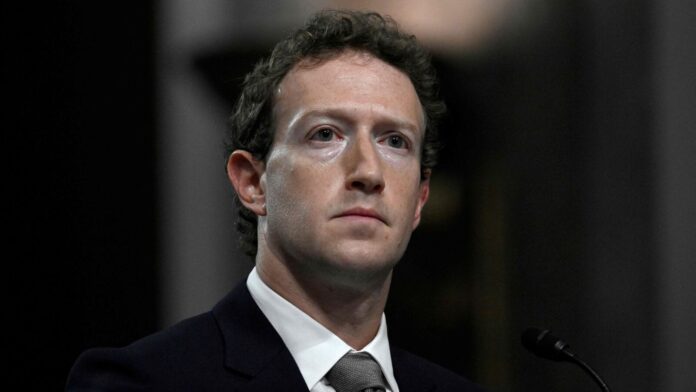When Mark Zuckerberg earnestly looked at a camera and told the world (or President-elect Donald Trump) that he was shutting down all fact-checking on Facebook and Instagram, he left out some important context. His changes would only apply to US users of Instagram and Facebook, just as the EU rolls out a law to target disinformation.
There’s a couple of ways to look at that. If you believe that Facebook’s work on content moderation has been a form of censorship, then Americans will be blessed with new freedom in Zuckerberg’s vibrant public square. If you think it’s protected people from toxicity, you’ll pity Americans. Either way, you’ll experience social media differently, depending on where you reside.
Meta’s fact-checking policies, of course, had problems. But the cause wasn’t “political bias,” which Zuckerberg cited without evidence as the reason for shutting the operation down. Its was inept decision-making. It would have been more sensible for Zuckerberg to order an upgrade of his fact-checking systems to allow for more nuance, and invest more money in the effort.
But the Facebook founder, it seems, likes to jump on new fads and copy rivals, and was bound to take the most politically expedient action after Trump was elected.
With fact-checkers leaving, along with the “false information” labels they slap on the occasional post, American users of Facebook and Instagram will be able to join a voluntary system, similar to X’s Community Notes feature, and fact-check each other instead.
This isn’t a terrible idea, but does the system work? It depends who you ask. While academic research has shown it can counter some vaccine misinformation and help users distinguish misleading posts, the notes themselves can be slow to implement, and half-truths can go viral by the time they’re debated and posted.
Alan Rusbridger and Khaled Mansour, who sit on Meta’s Oversight Board, which deals with content disputes, don’t believe in the model.
In an op-ed they wrote: “If this model of community notes had applied in Britain at the time of the Southport riots last year, there would have been no-one to arbitrate on wild rumors about the identity or religion of the alleged assailant: the truth would take second place to the competing claims of whoever wished to pitch in.”
What’s more certain is that the experience of Facebook and Instagram will become more geographically fragmented, and not just because of the fact-checkers. Meta AI assistant, which had close to 500 million monthly active users last September, has been delayed in the EU because of concern from the region’s top privacy regulator about using people’s data to train its AI models.
Zuckerberg apparently pities Europeans for missing out. “It’s sad that I basically have to tell our teams to launch our new AI advances everywhere except the EU at this point,” he said in a Threads post in December. Meta said it represented a “step backwards for European innovation.”
Of course it doesn’t. European innovation isn’t defined by a large Silicon Valley company giving consumers a widget in exchange for their data. Chatbots collect far more personal details than Google queries ever did, and Meta collects the prompts that people type into its AI.
Maybe it’s not the worst outcome for Europeans to miss out on another data-mining operation, until it’s been set up to handle their details appropriately. What Zuckerberg frames as a regulatory barrier is a foundation for building public trust in AI systems.
Meta likely won’t apply the EU’s new rules on disinformation, known as the Digital Services Act, on Americans, as several legal experts tell me. Doing so would be politically costly for Zuckerberg, particularly when Trump lashes out (and you know he will) at EU officials for fining companies like Meta or Google that breach the new law.
That may mark a new era for how social media giants follow European rules. Back in 2018, when the EU launched its General Data Protection Regulation to protect online privacy, many companies made changes globally because running separate systems was too complex and expensive.
But the so-called ‘Brussels effect’ may now be weakening, as leaders like Zuckerberg find it more valuable to run their platforms in a more fragmented way and placate government officials on opposite sides of the Atlantic Ocean.
Meta’s changes won’t be quite as dramatic as the Great Firewall, which has seen China develop a completely siloed internet culture. But they could spell a decoupling of relations between US and European internet users over the coming years.
At a time of growing tensions over trade and territory, that may not be the healthiest direction to go. ©Bloomberg
#Zuckerbergs #Meta #shift #leave #user #base #platforms #split
